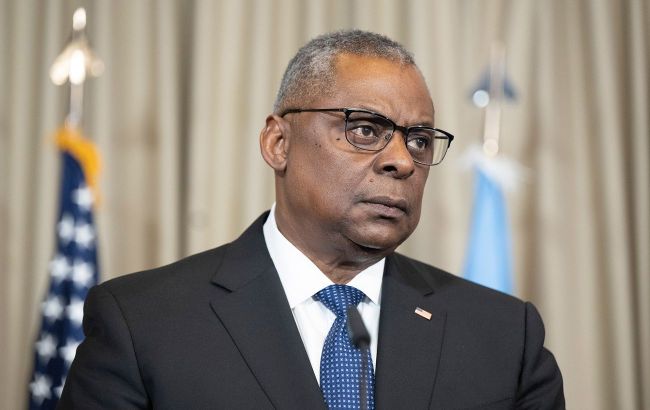US urges Israel to scale back strikes on Beirut
 Photo: US Secretary of Defense Lloyd Austin (Getty Images)
Photo: US Secretary of Defense Lloyd Austin (Getty Images)
The United States would like Israel to scale back the number of strikes on Lebanon's capital, Beirut, and its surroundings due to the high number of civilian casualties, according to US Secretary of Defense Lloyd Austin.
"We'd like to see Israel scale back on some of the strikes it's taking, especially in and around Beirut. And we'd like to see things transition to some sort of negotiation that will allow civilians on both sides of the border to return to their homes," said the Pentagon chief at the G7 defense meeting in Naples, Italy.
Strikes on UN peacekeepers
Austin also reported that he addressed his Israeli counterpart Yoav Gallant regarding reports of Israeli attacks on positions of the UN peacekeeping mission in Lebanon.
The mission, known as the United Nations Interim Force in Lebanon (UNIFIL), stated on Friday that it had suffered several deliberate attacks from Israeli forces in recent days, complicating efforts to assist civilians in villages within the combat zone due to Israeli shelling.
"He (Gallant) assured me there's no intent of him or his forces to target UNIFIL forces. Again, I continue to emphasize how important it is that those forces don't come under attack," Austin said.
In a confidential letter from Austin and Secretary of State Antony Blinken to Israeli officials last week, there was a demand for specific measures to address the deteriorating humanitarian situation in the Gaza Strip or face possible restrictions on American military aid.
Austin declined to discuss the letter but noted that the US observes "a sharp decline in the amount of aid going in."
"So we need to bend that curve in the other direction," Austin said.
In response to a question about any changes in recent days, he stated that he had "seen things being done to get more aid in."
Hezbollah's shelling and Israel's response
On Saturday, October 19, the Israeli military conducted powerful strikes on several targets in the southern suburbs of Beirut. The Israel Defense Forces (IDF) stated that they struck weapons facilities belonging to the Lebanese militant group Hezbollah.
The strike occurred in response to fire from Lebanese militants in northern Israel. A spokesperson claimed that a drone was reportedly launched at the residence of Prime Minister Benjamin Netanyahu.
The Prime Minister was not at the location then, and whether the drone hit the building was unclear. However, he described it as an assassination attempt by "Iranian puppet Hezbollah" and labeled it a serious mistake as Israel prepares to respond to Iranian missile attacks earlier this month.
Earlier on Saturday, two individuals died in an Israeli strike while traveling on a major highway in Lebanon near the city of Jounieh, where most of the population is Christian. Another strike claimed the lives of at least four people in Lebanon's Bekaa Valley, one of whom was the mayor of a neighboring town — the second mayor to die this week.
Officials, diplomats, and other sources claim that with the upcoming US election, Israel seeks to leverage increased military operations to secure its borders and prevent its adversaries from regrouping.
Escalation of war between Israel and Hezbollah
Hezbollah has been firing on Israel since the war between Israel and the Palestinian militant group Hamas began in Gaza last October.
In recent months, hostilities between the parties have significantly escalated. About three weeks ago, Israel launched a ground military operation in southern Lebanon to stabilize the border region for its citizens who had fled their homes due to the fighting.
On October 12, two UN peacekeepers were injured in southern Lebanon due to shelling by the Israeli army. Explosions occurred near the Blue Helmets base.
The EU condemned this act of violence.
Following this, Israeli Prime Minister Benjamin Netanyahu called for the withdrawal of peacekeepers from southern Lebanon. He believes that Hezbollah uses peacekeeping forces as human shields.

